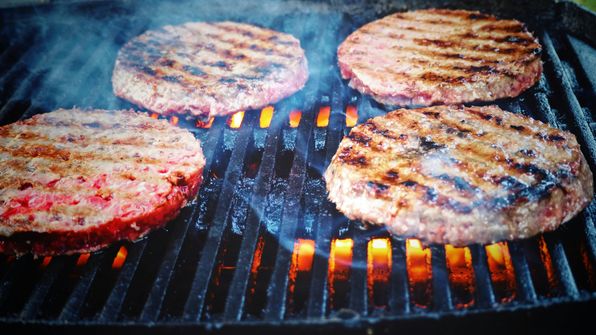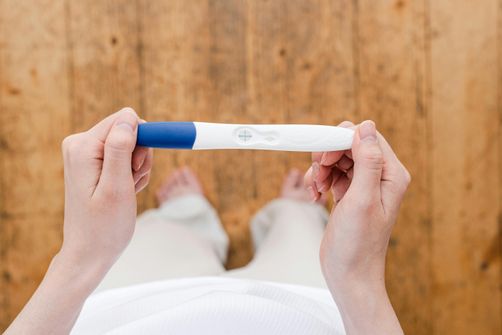
Social Success on the Carnivore Diet: Tips for Staying Committed at Gatherings and Restaurants
Social gatherings often mean a spread of carb-heavy foods and tempting desserts that can make sticking to the carnivore diet feel tricky. But with a b...

Navigating the world of diet and health can be daunting, especially when dealing with specific conditions like high cholesterol. The carnivore diet, which focuses on eating only animal products, has garnered both praise and criticism. So, what’s the beef with this diet and cholesterol levels in women?
Let’s dive into the juicy details and find out!

High cholesterol is when there’s too much of this fatty substance in your blood. It’s necessary for building cells, but too much can lead to plaque buildup in your arteries. This can significantly increase the risk of heart disease and stroke.
About 38% of American adults have high cholesterol. Women, especially after menopause, are more vulnerable due to hormonal changes. LDL (low-density lipoprotein) is often labeled as the “bad” cholesterol, while HDL (high-density lipoprotein) is considered the “good” cholesterol.
High cholesterol levels are particularly concerning for women, especially post-menopausal women. The reduction in estrogen levels during menopause is linked to an increase in LDL cholesterol and a decrease in HDL cholesterol. This hormonal shift significantly raises the risk of heart disease, which is the leading cause of death among women in the United States.
The carnivore diet consists exclusively of animal products: meat, fish, eggs, and some dairy. It completely eliminates plant-based foods, including fruits, vegetables, grains, and nuts.
This diet is high in protein, emphasizing animal protein sources. By eliminating carbohydrates, the diet forces the body to use fats as its primary energy source. It is also high in fats, especially saturated fats from red meat and dairy, which are essential for various bodily functions but controversial in their effects on cholesterol.
The carnivore diet typically consists of 70-80% fat, predominantly from animal sources, 20-30% protein, essential for muscle repair and growth, and 0% carbohydrates, leading to a state of ketosis.
Some studies suggest that a high-protein, low-carb diet can raise HDL cholesterol levels. For example, a study in the Annals of Internal Medicine found that participants on a low-carb diet saw a 10-15% increase in HDL cholesterol. Higher HDL levels help remove LDL cholesterol from the bloodstream, potentially lowering the risk of heart disease.
The carnivore diet might help you shed those extra pounds, which can positively impact cholesterol levels. Research shows that losing just 5-10% of body weight can significantly improve your cholesterol levels. This weight loss primarily results from the body entering a state of ketosis, where it burns fat for energy due to the absence of carbs.
Cutting out processed foods and sugars can reduce inflammation, a key player in high cholesterol and heart disease. A diet rich in animal proteins and fats, devoid of inflammatory foods, may help lower systemic inflammation, thereby improving heart health.
High intake of saturated fats from red meat and dairy can raise LDL cholesterol levels. A review in the Current Atherosclerosis Reports reported that diets high in saturated fats could increase LDL cholesterol by up to 10%. Elevated LDL levels are a significant risk factor for heart disease.
Fiber helps reduce LDL cholesterol and supports heart health, but the carnivore diet lacks this essential nutrient. The American Heart Association recommends 25-30 grams of fiber daily, which is tough to get when you’re all about the meat. Fiber also aids in digestion and maintaining healthy blood sugar levels.
The diet’s restrictive nature can lead to deficiencies in essential nutrients like vitamins C and E, magnesium, and potassium, which are crucial for heart health. These vitamins and minerals are typically found in fruits, vegetables, and whole grains, all absent in the carnivore diet.

Jane, 45, started the carnivore diet to manage her weight and cholesterol levels. After six months, she reported a 20-pound weight loss and improved HDL cholesterol levels, though her LDL levels stayed the same. Her doctor advised regular monitoring and some fiber supplements.
Post-menopausal Maria, 55, struggled with high cholesterol. She saw improved energy levels and reduced inflammation on the carnivore diet but also a slight increase in LDL cholesterol. Her doctor suggested balancing her diet with omega-3 supplements.
Linda, 50, noticed her LDL cholesterol levels spiked after a year on the carnivore diet. Her doctor recommended reintroducing plant-based foods and fiber into her diet.
Sara, 40, experienced significant weight loss but also nutrient deficiencies, prompting her to switch to a more balanced diet while keeping her protein intake high.
Regular blood tests are essential to track cholesterol changes. Get a lipid panel test every 3-6 months to stay on top of things. Monitoring both LDL and HDL levels is crucial to understanding how the diet affects your overall heart health.
Choose fatty fish and leaner cuts of meat to balance saturated fat intake. Omega-3 fatty acids from fish like salmon can help lower LDL cholesterol. Incorporating seafood into your diet can provide the necessary healthy fats without the excessive saturated fat found in red meat.
fiber supplements can help make up for the lack of dietary fiber. Psyllium husk supplements are a popular choice. Additionally, consider multivitamins to address potential nutrient deficiencies. Brands like Metamucil for fiber and Centrum for multivitamins are well-regarded options.
Drinking plenty of water is crucial to support kidney function and overall health. Dehydration can exacerbate the negative effects of high protein intake, so aim for at least 8 cups of water daily.
Personalized advice from a healthcare provider is vital to address your individual health needs and risks. Discussing your diet plan with a doctor ensures that any potential issues are addressed early on.
This meal plan focuses on high-quality animal products while being mindful of saturated fat intake. Incorporating lean meats and fatty fish rich in omega-3 fatty acids can help manage cholesterol levels.

This meal plan provides a variety of protein sources and healthy fats while minimizing the intake of saturated fats, which can help manage cholesterol levels on a carnivore diet. Always consult with a healthcare provider or a dietitian before making significant changes to your diet, especially if you have high cholesterol or other health concerns.
The carnivore diet offers a mixed bag of potential benefits and risks for women with high cholesterol. While it may help increase HDL cholesterol and support weight loss, the increase in LDL cholesterol and lack of fiber are significant concerns. Regular monitoring, balanced dietary choices, and professional guidance are crucial for women considering this diet.
Thinking about jumping on the carnivore bandwagon? Make sure you’re not biting off more than you can chew. Stay informed, keep an eye on those cholesterol levels, and don’t shy away from seeking professional advice. Your heart will thank you, and so will your future self!
A: It can potentially raise HDL cholesterol levels but might also increase LDL cholesterol. Monitoring and balancing the diet are essential.
A: It depends on individual health conditions. Consulting a healthcare provider before starting the diet is crucial.
A: Every 3-6 months to monitor changes and adjust the diet as needed.
A: Yes, fiber supplements can help mitigate the lack of dietary fiber and support cholesterol management.
A: Leaner cuts of meat and fatty fish rich in omega-3 fatty acids are better choices.
A: Long-term studies are limited, so ongoing monitoring and a balanced approach are recommended.

Social gatherings often mean a spread of carb-heavy foods and tempting desserts that can make sticking to the carnivore diet feel tricky. But with a b...

The carnivore diet is often seen as straightforward: eat meat, keep it simple. But adapting it seasonally can bring freshness, variety, and local flav...

The carnivore diet has become increasingly popular, but like any extreme dietary approach, it raises important questions—especially for women concerne...

The carnivore diet has gained attention globally, but women’s experiences and cultural approaches to animal-based eating vary widely depending on wher...

Living with Chronic Obstructive Pulmonary Disease (COPD) can make everyday activities feel like a marathon, especially for women who are juggling heal...